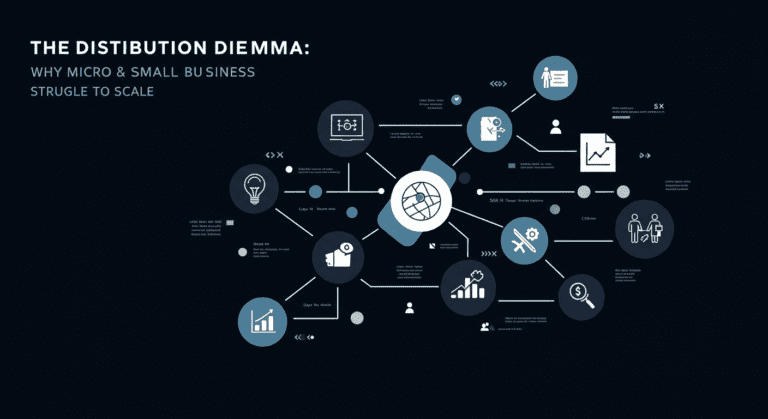In the Nigerian business landscape, there’s a common misconception: “As long as I’m selling, I’m winning.” Many entrepreneurs believe that consistent sales automatically translate to business success. But what if you’re selling and still losing money?
This is the dangerous trap many businesses fall into—running operations that generate revenue but fail to turn a profit. The illusion of movement keeps them going, but in reality, they’re just digging deeper into financial quicksand.
The Illusion of Sales Growth
When a business starts making sales, there’s excitement. Customers are buying, transactions are happening, and the brand is gaining traction. But somewhere along the line, the books don’t balance. Despite all the effort, there’s little to no profit left at the end of the month. What went wrong?
Many Nigerian entrepreneurs operate with a “survival mindset.” The economy is tough, inflation is rising, and competition is fierce. To stay relevant, they slash prices, hoping that increased sales volume will make up for the reduced profit margin. But that rarely works. Instead, they end up stuck in a cycle where they’re working harder but earning less.
Why Are Some Businesses Selling But Not Profitable
1. Underpricing to Attract Customers
In a bid to gain more customers, many business owners price their products too low. The logic? “If my price is lower than my competitors’, I’ll sell more.” But this often leads to selling below cost price or with margins too thin to cover expenses. In Nigeria, where operating costs are high, this strategy is a financial death trap.
2. High Operational Costs
Running a business in Nigeria isn’t cheap. Rent, electricity (hello, generator bills), internet, logistics, and staff salaries all eat into revenue. If a business doesn’t account for these expenses in pricing, profit becomes elusive. Many SMEs operate in high-cost environments but fail to adjust their pricing accordingly.
3. Poor Financial Planning
A surprising number of business owners don’t track their financials properly. They focus on revenue while ignoring expenses, taxes, and debts. Profit isn’t just about how much you sell—it’s about how much you keep after paying bills. Without proper financial planning, even a business making millions in sales can be running at a loss.
4. Selling on Credit
In many Nigerian markets, customers are quick to say, “Abeg, I go pay next week.” Some businesses, eager to make sales, allow it. The result? Cash flow problems. Goods are leaving the business, but money isn’t coming in. When too much stock is tied up in unpaid credit, the business struggles to meet daily operational costs.
5. Excessive Discounts
Discounts can attract customers, but when overused, they erode profits. Nigerian customers love a good bargain, and businesses often cave in by offering discounts just to keep sales coming. But if those discounts aren’t strategically planned, they do more harm than good.
How to Escape the Sales-Without-Profit Trap
1. Know Your Numbers
Many entrepreneurs make pricing decisions based on guesswork rather than actual cost analysis. Before setting prices, calculate the cost of goods sold (COGS), operating expenses, and desired profit margins. A simple pricing formula can be:
2. Selling Price = Cost Price + Expenses + Profit Margin
If your price doesn’t cover all of these, you’re running at a loss.
3. Stop Competing on Price Alone
If your only selling point is “I sell cheaper,” you’re in trouble. Instead of competing on price, compete on value. Offer better quality, superior customer service, or an added benefit that makes customers choose you over cheaper alternatives.
4. Reduce Unnecessary Expenses
Many businesses bleed money on avoidable costs. Track your expenses, cut waste, and negotiate better deals with suppliers. Sometimes, small adjustments in expenses can make a big difference in overall profitability.
5. Introduce Better Payment Policies
If customers frequently buy on credit, set stricter policies. Implement upfront payments, deposits, or installment plans with clear deadlines. If necessary, offer small incentives for customers who pay upfront instead of allowing unpaid balances to accumulate.
6. Focus on High-Margin Products/Services
Not all products bring the same level of profit. Analyze your product line and identify those with higher margins. Prioritize promoting and selling these instead of focusing on low-margin items.
7. Leverage Technology
Using financial management software can help track expenses, revenue, and profit margins accurately. Tools like accounting apps and digital payment platforms streamline transactions and improve financial visibility.
8. Think Long-Term, Not Just Immediate Sales
Instead of chasing quick revenue, build a sustainable business model. Focus on customer retention, brand positioning, and financial sustainability rather than just making daily sales.
Real-Life Lessons from Nigerian Entrepreneurs
Case Study 1: The Struggling Retailer
Chika runs a fashion boutique in Lagos. She’s always making sales, but by the end of each month, she’s barely breaking even. Why? Her rent is high, she sells on credit, and she offers discounts to every customer just to keep them happy. After analyzing her numbers, she increased prices slightly, stopped credit sales, and introduced a loyalty program instead of random discounts. Within six months, her profits improved significantly.
Case Study 2: The Smart Food Vendor
Segun sells packaged snacks. Initially, he focused on selling large volumes at low prices. However, after struggling with rising production costs, he changed his approach. Instead of lowering prices, he branded his products as premium, marketed to corporate clients, and introduced bundle deals. His sales reduced slightly, but his profits doubled because he focused on value, not just volume.
The Bottom Line
Sales without profit is a dangerous illusion. It gives a false sense of success while slowly draining the business. Nigerian entrepreneurs must shift from the mindset of “more sales” to “more profitable sales.”
At the end of the day, the goal isn’t just to sell—it’s to sell profitably and sustainably. If your business is making sales but struggling financially, it’s time to take a hard look at your numbers, rethink your strategy, and focus on real growth.
Because, in business, movement without progress is just wasted energy.





